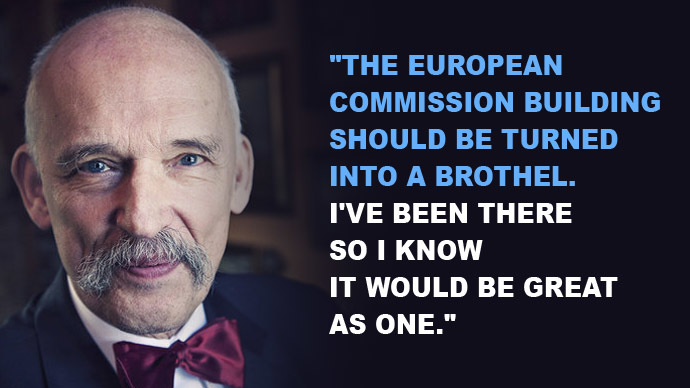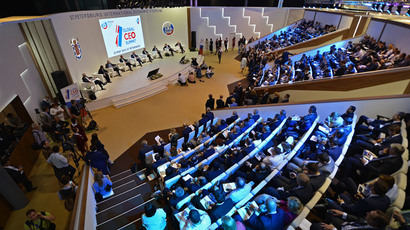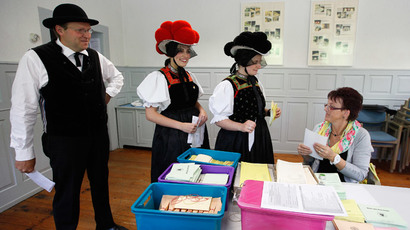The right storms Europe vote: Your quick guide to the anti-EU hardline
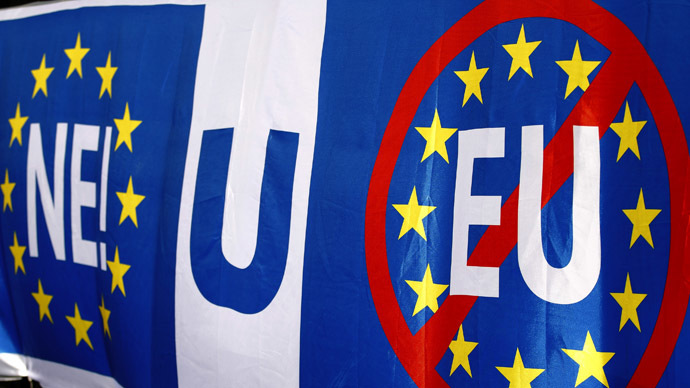
The EU parliamentary elections have seen a marked shift towards both right-wing and Euroskeptic political parties. From the National Front to UKIP, RT has drawn up a list of the need-to-know political parties coming to prominence in the EU.
The National Front
The National Front far-right party in France gleaned 25 percent of the votes in the latest EU elections, according to early results. It’s well ahead of the opposition center-Right UMP party, which received 20.6 per cent – a 9 percent drop since the last elections.
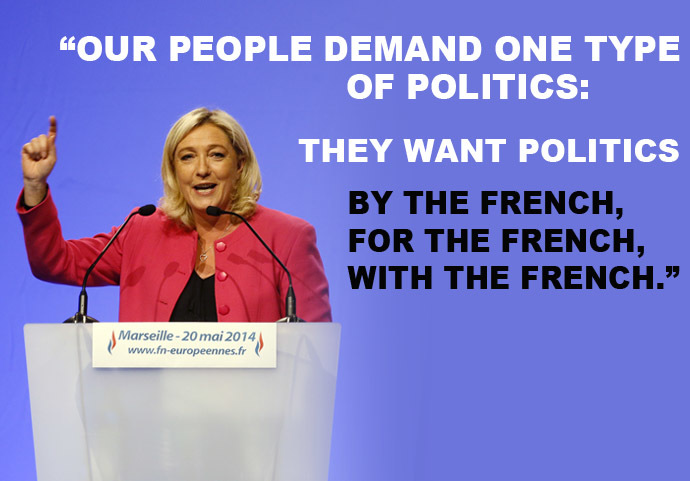
“Our people demands one type of politics: they want politics by the French, for the French, with the French. They don’t want to be led anymore from outside, to submit to laws.”
The victory was in fact a triple win: Marine Le Pen came top with 32.6 percent in her constituency in the north-west of France, Jean-Marie le Pen (Marine’s father, the party’s founder) was in the first position with 28.9 percent in the south-east and Louis Aliot, Le Pen’s partner, scored 23.7 percent – in pole position - in the south-west.

“This result is more than a new warning: it’s a shock, an earthquake,” he said, pledging to push on with reforms “faster - there isn’t a moment to lose” – French Socialist Prime Minister Valls
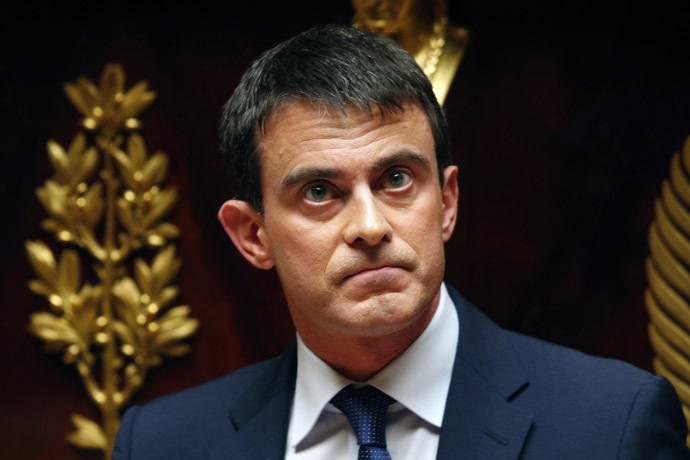
The party is known to deny the Holocaust and the impact the Nazi invasion during WWII had on the country.
In 2005, Jean-Marie Le Pen described the Nazi occupation as "not particularly inhumane, even if there were a few blunders, inevitable in a country of [220,000 square miles]" and in 1987 referred to the Nazi gas chambers as "a point of detail of the history of the Second World War.”
UKIP
The UK Independence Party (UKIP) garnered 27.5 percent of the vote in the latest EU elections, beating off competition from the Lib Dems, Conservatives and Labour.
UKIP has gone from strength to strength since the onset of the European crisis, championing anti-EU and anti-immigration policies.
Nigel Farage heads the party and recently came under fire for alleging that immigrants from Romania were responsible for a crime wave in London.
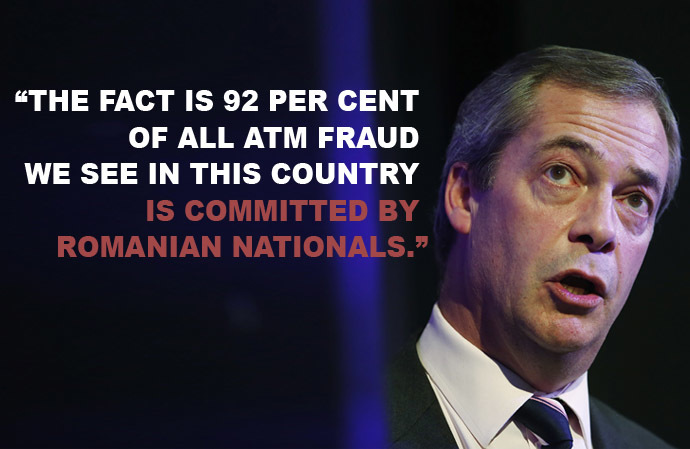
Their controversial statements include MEP Godfrey Bloom’s speech, in which he referred to countries in receipt of UK government aid as “bongo bongo land.”
Farage was fined 3,000 euro in 2010 for a tirade against then European Council Herman Van Rompuy.
He called Belgium a “non-country” and likened Van Rompuy to a “low-grade bank clerk” with the charisma of a “damp rag.”
Their political peers have described them as racist, xenophobic and homophobic, with Prime Minister David Cameron famously declaring them “a bunch of fruitcakes, loonies and closet racists.”
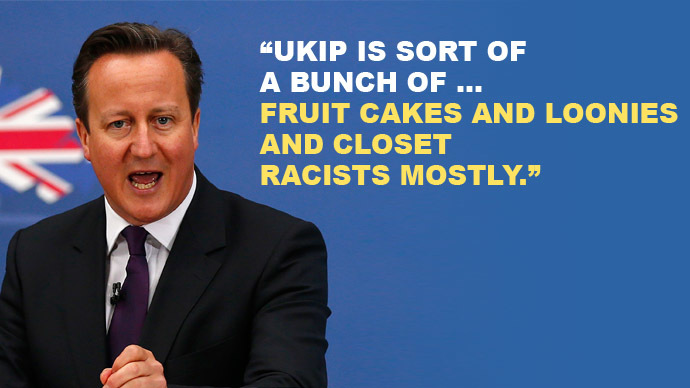
Syriza
Greece’s radical, leftist Syriza party snatched victory from the conservative New Democracy party headed by Prime Minister Antonis Samaras in the EU elections.
Party leader Alexis Tsipras hailed the victory, saying it was evidence the current government has no right to continue with its austerity measures.
He has called for an immediate end to Greece’s “barbarous” bailout deal.
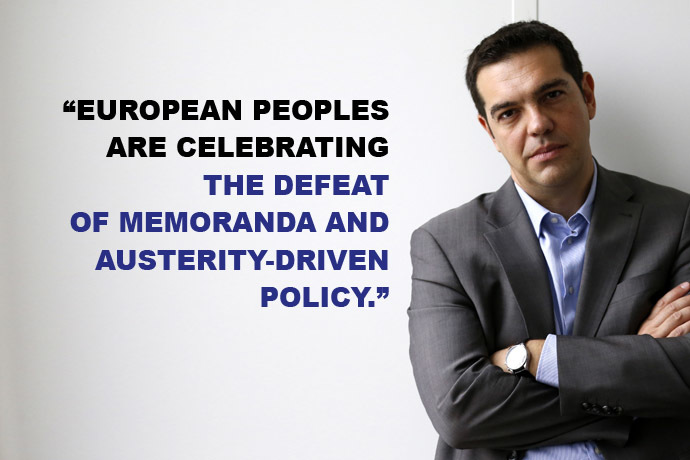
Samaras said that while the party’s victory in the elections sent a strong message to the government, voters had rejected “the overthrow that Syriza wanted.” The party was formed in 2004 as a coalition of left-wing and radical left organizations.
Golden Dawn
Greek far-right party Golden Dawn won three seats in the European Parliament in the elections.
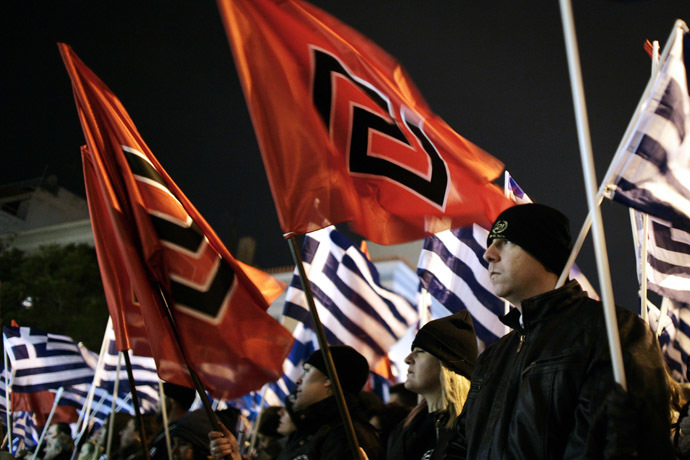
Despite the fact that most of the party’s 18 lawmakers are under criminal investigations, the Greek Supreme Court ruled to allow the Golden Dawn to take part in the EU elections.
Leader of the Golden Dawn Nikolaos Mihaloliakos is currently in jail after he was arrested last year for participating in a “criminal organization.”
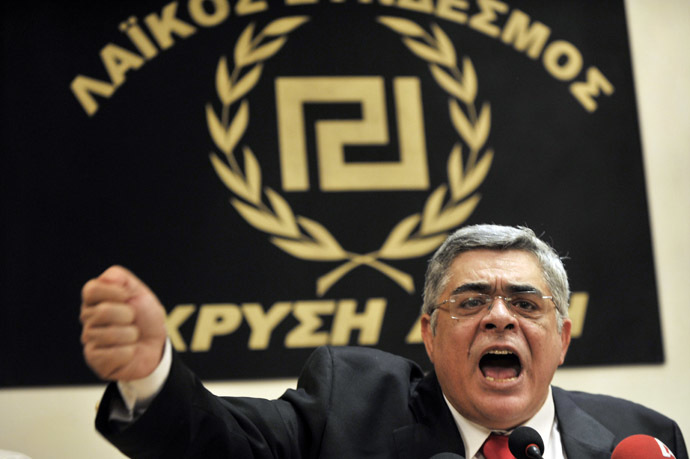
The party has a strong anti-immigration policy and champions slogans such as “Clean up the stench,” and “Greece for the Greeks.”
Golden Dawn began as a fringe party in 1985 and rose to popularity during the crisis in Greece, winning 18 seats in the Hellenic Parliament in 2012.
Alternative for Germany Party
Branded as “unelectable mavericks” by the German Political elite, the Alternative für Deutschland (AFD) won 7 percent of the vote in the EU elections and will enter the 28-nation bloc’s parliament.
Under the banner of "Have Courage to Be Germany" to party demands no less than Germany’s return to the Deutschmark and the repatriation of powers from Brussels.
The organization is headed by 51-year-old Bernd Lucke, who infamously referred to poor immigrants as “social dregs.”
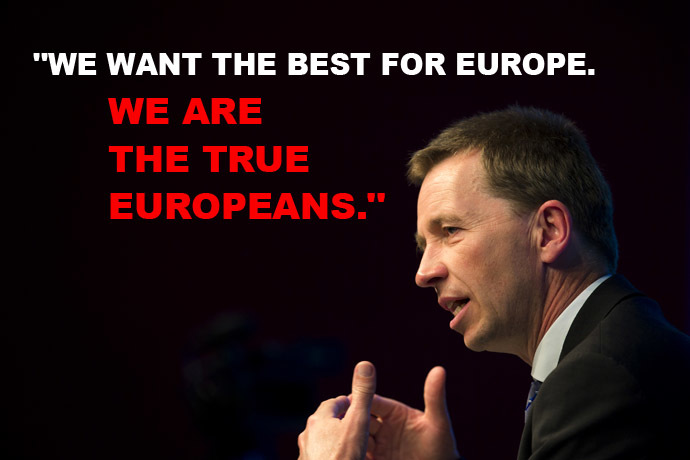
Lucke has denied allegations of flirting with far-right populists in the run up to the European elections.
The Sweden Democrats
Nationalist party the Sweden Democrats took their first ever European Parliamentary seats in the elections.
In 1999 the organization rejected links to Nazism, but still retains a strong anti-immigration and anti-EU polices.
Party leader Jimmie Akesson said his organization’s critical stance on the EU had attracted voted from the Swedish public.
New Right Party
Leader of the Polish New Right Party Janusz Korwin-Mikke has won a seat in the European Parliament.
The eccentric politician harbors many controversial views and has called for the restoration of the Polish monarchy. He also suggested the European Commission building should be turned into a brothel.
